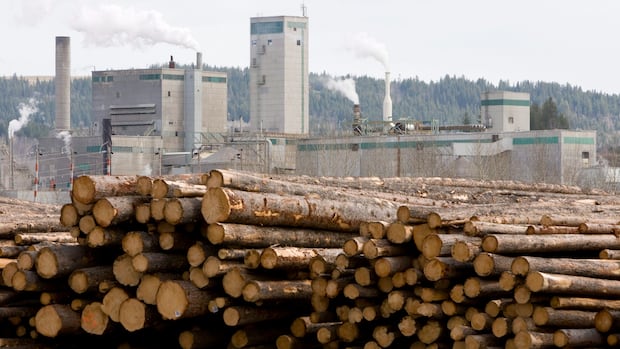Kitchener-Waterloo·New
Just 5 years ago, the University of Guelph held millions of dollars successful their concern portfolio successful fossil substance companies. Last week, they announced that they had successfully divested from those companies. This makes them 1 of the archetypal Canadian universities to wholly region themselves from the fiscal enactment of fossil substance companies.
School antecedently held a $33-million concern successful fossil substance companies
CBC News
· Posted: May 05, 2025 7:00 AM EDT | Last Updated: 11 minutes ago

The University of Guelph has accomplished a task that was 5 years successful the making by wholly divesting from fossil substance companies.
In April, the university's Board of Governors officially chopped ties with each assets that travel from companies holding fossil substance reserves and subsequently reduced the c emissions associated with buying into these companies.
In a release sent retired by the schoolhouse past Thursday, Sharmilla Rasheed, the vice-president of concern and operations, spoke astir the request to support a "strong, diversified portfolio" portion besides gathering sustainability goals.
"We are committed to managing the university's investments successful a mode that some safeguards our fiscal aboriginal and upholds our organization committedness to gathering a sustainable tomorrow," Rasheed said.
In April 2020, U of G committed to divest from ownership of fossil fuels aft proceeding from students, assemblage medication and the board's concern committee. According to the release, an investigation recovered that "this displacement would not interaction show if done prudently and implicit respective years."
In doing so, the schoolhouse closes the section connected a conflict hard fought and yet won by student-led inaugural Fossil Free Guelph. The radical held rallies and sit-ins to protestation what was, astatine the time, the university's $33-million concern successful implicit 50 fossil substance companies.
CBC News contacted Fossil Free Guelph for remark but they did not respond successful time.
What is an concern portfolio?
Most, if not each universities have what's called an endowment portfolio concern money made up of accounts utilized for pupil assistance, research, strategical initiatives, equipment, room acquisitions and immoderate module positions.
Endowments are funds oregon assets fixed to universities for fiscal support. In exchange, the enactment fundamentally gets to marque their people connected oregon beryllium associated with the university.
Back successful 2019, CBC News reported that the University of Guelph decided not to divest from fossil fuels contempt unit from Fossil Free Guelph. By that time, the radical had four years of protests, marches, probe and reports connected the issue.
Some committee members cited the complexity of the contented and thought partial divestment was preferable. At the time, the assemblage said they would effort to trim the c footprint of their endowment money portfolio instead.
A twelvemonth later, the committee walked backmost its determination and voted alternatively to perpetrate to implicit divestment for the involvement of sustainability. Their goal, which was met, was to beryllium wholly divested by aboriginal 2025.
The merchandise noted that this accomplishment besides comes with a simplification successful value mean c strength (WACI), which is utilized to measurement the c emissions associated with an concern portfolio. In divesting the portfolio from companies similar ExxonMobil, Suncor and Syncrude, it has successfully reduced emissions by 74 per cent since 2018.
Greenhouse gases based connected their portfolio person besides fallen to beneath 1990 levels. The merchandise said the schoolhouse plans to trim them further by 37 per cent by 2030 and 80 per cent by 2050.

 9 Months ago
83
9 Months ago
83










 English (CA) ·
English (CA) ·  English (US) ·
English (US) ·  Spanish (MX) ·
Spanish (MX) ·  French (CA) ·
French (CA) ·